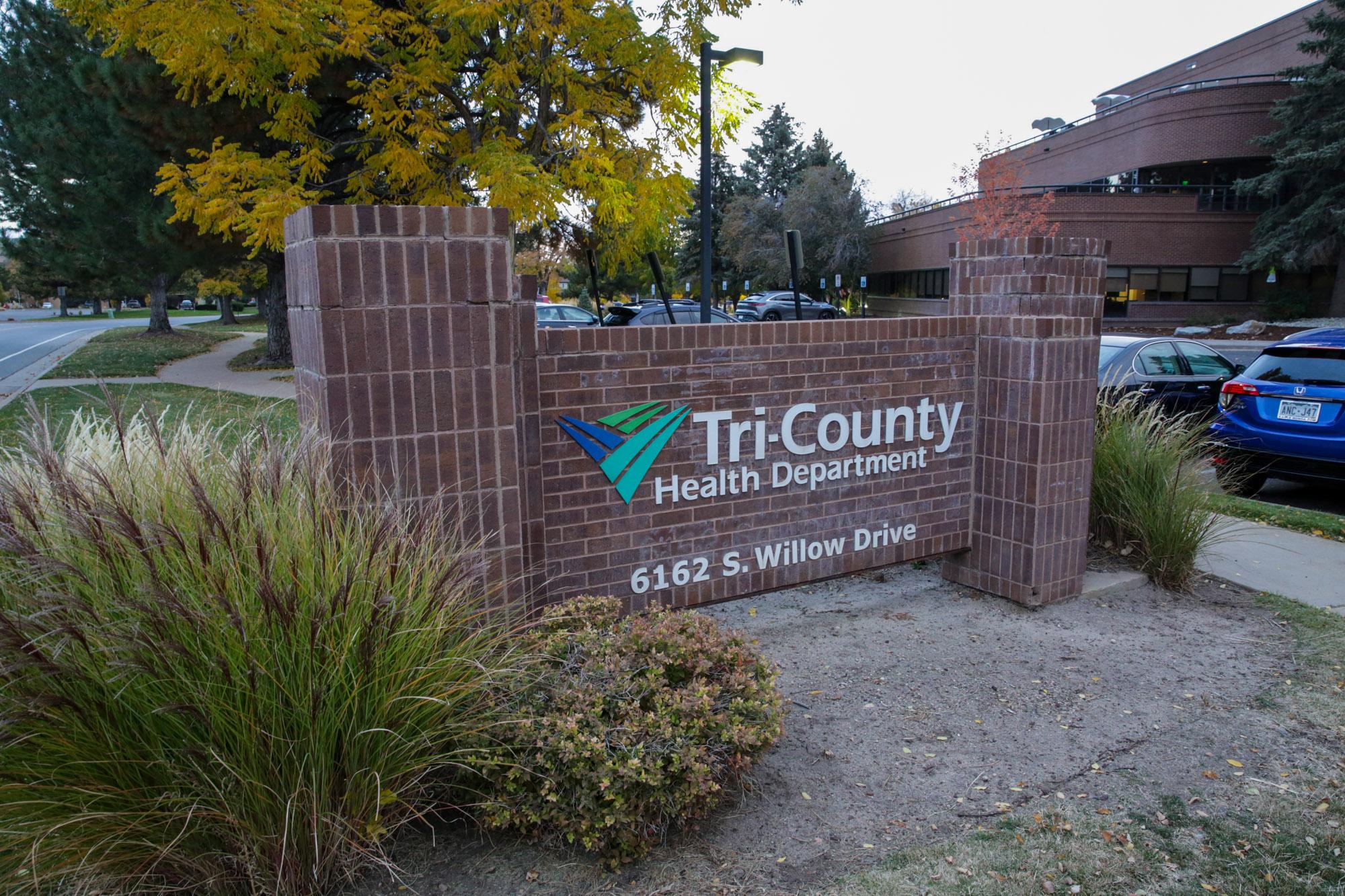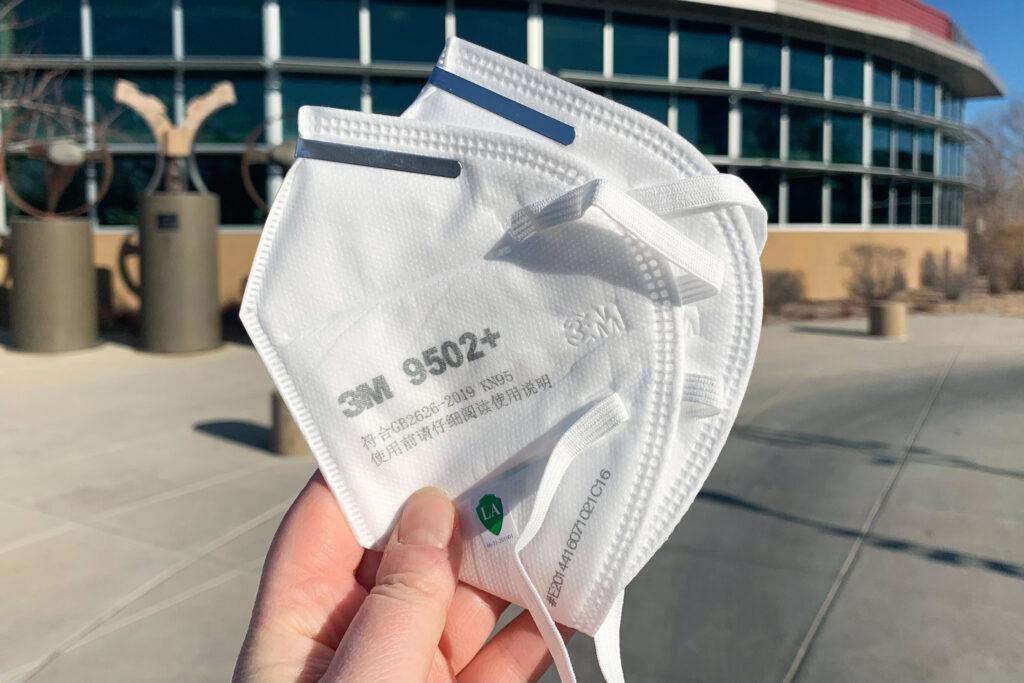
Colorado's COVID-19 numbers are still high, but improving, as the state's omicron wave appears to be subsiding.
Hospitalizations of confirmed coronavirus patients fell to 1,300 Monday. That's the lowest number in almost a month — but still within 300 of the peak of the delta wave, which crested at 1,576 around Thanksgiving. Scott Bookman, the state's incident commander, says that trend is looking better after hitting near-record highs earlier this month.
“(I) do still wanna stress a lot of patients in the hospitals with COVID,” Bookman told reporters in an update last Thursday. “Our healthcare workforce does still remain under stress, but we are seeing improvements.”
Nearly two-thirds (64 percent) of confirmed COVID-19 patients are unvaccinated.
The numbers posted on the state’s COVID-19 dashboard Monday presented further evidence of a steep decline in coronavirus trends, which had all shot up in the weeks after the holiday season. On Jan. 18, that level hit 1,676, within 200 of the all-time pandemic high of 1,847 set on Dec. 1, 2020.
On Monday, two other key hospitalization metrics showed signs of improvement, while remaining elevated. Hospitals anticipating staffing shortages in the next week dropped to 48 percent and hospitals anticipating an ICU bed shortage dropped to 28 percent.
The numbers also suggest transmission is easing. The 7-day positivity rate, the rate of positive tests, fell to 18.39 percent Monday.
That is still well above the 5 percent level public health officials say signals concern. But it's fallen sharply since mid-January when it hit a record of almost 30 percent.
State epidemiologist Dr. Rachel Herlihy says state modelers are cautiously optimistic that transmission could keep declining in the coming weeks and months.
“But also they do highlight in their report that that, of course, depends on not seeing a new variant emerge,” she said on Thursday. “Obviously we know that a new variant emerging would certainly change the story.”
Denver, Arapahoe and Adams counties allow mask mandates to expire
Those numbers came as the city of Denver announced Monday that they would not extend their city-wide mask mandate.
Citing improving pandemic metrics, Denver Mayor Michael Hancock said starting Friday, masks won’t be required in most public indoor spaces.
“We're following the guidance and we're following the numbers and we'll continue to do that which means that if there was a major spike that threatened the public health of our residents, then we'd make decisions accordingly with that,” Hancock said.
Denver will still require masks in schools and childcare facilities. The mayor also emphasized that businesses or organizations could still require masks, particularly those that serve the elderly or vulnerable populations.
COVID-19 transmission, case rates and hospitalizations have all been dropping in the city in the latter part of January. Denver's 7-day case rate was about 2,000 on Jan. 10. But by Friday that fell to a quarter of that.
Meanwhile, COVID-19 hospitalizations remain high, but they've been dropping steadily in Denver for the last 10 days.
Tri-County Health voted in a special meeting Monday 5-1 to allow their mask mandate to expire later this week. Starting Saturday, Adams and Arapahoe counties will no longer require masks in indoor public spaces.
Tri-County officials went one step further than Denver by getting rid of mask mandates for K-12 schools.
Douglas County is still reevaluating their mask mandate.

In Denver, 'omicron has run out of fuel'
Denver Public health director Bob McDonald says the mask requirements were enacted two months ago when state COVID-19 modeling showed hospital capacity could be breached. Now things look better, according to the latest state models, so the mandate lifts by Friday.
“Modeling makes it very clear that lifting the face covering order now is safe. Cases are going to continue to decline and what that says is that omicron has run out of fuel,” he said. “There's nobody left to infect because so many people have had it, or the vaccine is holding up for many, many people.”
When asked by a reporter if the move might be too early, McDonald said he thought it was the right call.
"The modeling also indicates that we will not see the surge, like we just saw with omicron," he said. "We are not going to see that. There's large protection through natural immunity and vaccines. So, I don't think it's too premature to do it at this point."
McDonald said the trends could mean the community is moving towards another phase of the pandemic, where it’s not as much of an emergency.
“I think it's a little too early to make that determination,” he said. “But I think we are moving towards that space where this is handled more programmatically.”
Should another variant emerge, and conditions deteriorate again, McDonald acknowledged the city could bring back the mandate and other measures.
“I don't want to get in the habit of guessing what will happen in the future. I think we need to leave all doors open,” he said.
A lightning fast and deadly wave
The super-transmissible omicron variant took a heavy toll in recent weeks in terms of deaths, following close behind the brutal delta surge that hit Colorado this fall.
More than 200 Coloradans a week died from the delta strain of COVID-19 for seven straight weeks, from late October through early December.
For a short while, it looked like the state might catch a break. Then, just as it had elsewhere in the world and in the U.S., omicron exploded on the scene, driving case counts and transmission to record levels.
This led to a new wave of hospitalizations and deaths.
204 Colorado residents died from COVID-19 the week ending Jan. 9. The following week, another 171 died. The reporting data lags so even more cases could be added to January’s grim omicron toll.
In January, Colorado topped more than a million cases during the pandemic to date.
But the speed with which delta, and then omicron, spread the virus was noteworthy. The first 250,000 cases in the state were recorded between March 1, 2020, and Nov. 30, 2020. That took nine months.
The second 250,000 were recorded between Nov. 30, 2020, and April 18, 2021, a span of four and a half months. The third 250,000 came between April 18 and Oct. 30, 2021, another six and a half months.
Colorado identified the delta variant in May of 2021, not long after it was first found in the U.S. It soon became the dominant strain in the state.
The fourth 250,000 cases, powered by the delta variant, were recorded between Oct. 30, 2021, and Jan. 5, 2022 — only two months.
The next 250,000 were recorded in about 21 days.
Omicron was first detected in Colorado on Dec. 2, 2021. By January, the lightning-fast-spreading strain was by far the most dominant.
Alejandro Alonso Galva and Chuck Murphy contributed to this report.








